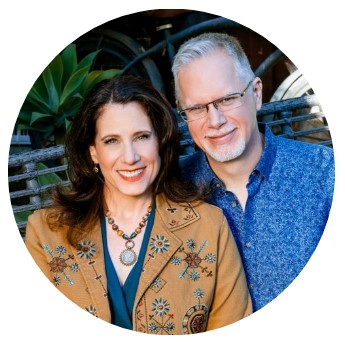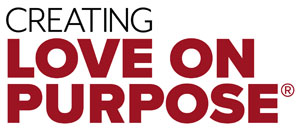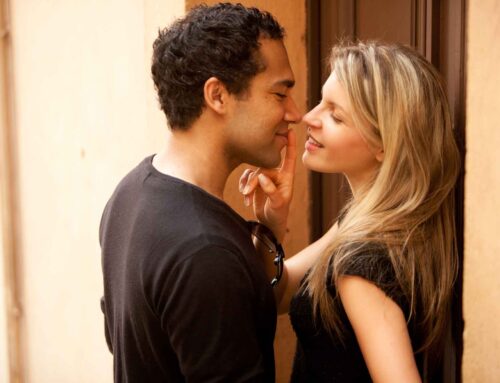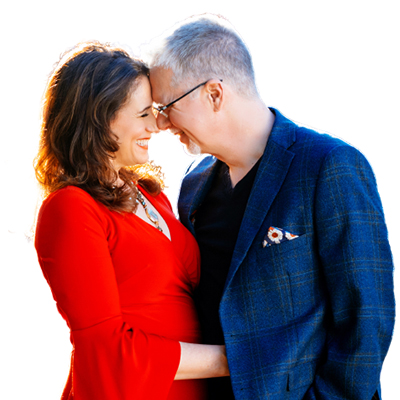What Is Your Love Imprint? How The Science Of Attraction Is The Key to Getting The Love You Want
Why are you drawn to a particular type of person and not others? More importantly, if you struggle with love and relationships, why are you attracted to people who aren’t good for you? The brain science of attraction along with Your Love Imprint® drive your strategies and behavior in love and dating. Knowing Your Love Imprint is the key to breaking your negative patterns so you can let love in.
Emily Dickinson famously said, “The Heart wants what it wants — or else it does not care.”
It’s discouraging when what your heart wants is unhealthy or toxic. Being attracted to someone who’s emotionally unavailable, mistreats you, or doesn’t love you back, can leave you believing that you’re somehow destined to be alone.
What if you could discover why your heart wants what it wants? The answer will lead you to create a healthier, more fulfilling relationship.
The reason you feel powerless to change this pattern is the reason you feel stuck. Because just knowing the pattern won’t break it. Journaling about it won’t break it. Talking about it won’t break it.
Once you clearly identify your specific pattern and why you created it you can take your power back. With entirely new strategies for love, you can create healthy, long-lasting love with a partner who treats you with kindness, respect, and compassion.
The key to the brain science of attraction is knowing Your Love Imprint and its role in selecting who you find attractive.
The Science Of Attraction And Your Family Of Origin
Whether you ever had a stable family unit or not, whether you were raised by one parent or both, you learned about intimate relationships from the people who raised you.
Psychoanalyst John Bowlby was an early proponent of the idea that mental health and behavioral problems could be attributed to early childhood. His groundbreaking work on early childhood attachment (commonly known as attachment theory) deduced that the same desire that creates the emotional bond between parents and children is responsible for the bond that develops between adults in emotionally intimate relationships.
What’s in the way of you creating a healthy relationship was created from the experiences of your early childhood.
So, the part of you that has been selecting a life partner is a much younger part of you that has no idea how the world works. Your strategies for love were cobbled together in your mind through your experiences during the early years of your life.
It doesn’t matter if you grew up in an idyllic home that was the envy of your friends, if you grew up in foster care with multiple caregivers, or anything in between. Because your mind is set up for you to survive at all costs and from your survival strategies you created a system for love.
We call this system Your Love Imprint.
What Is Your Love Imprint?
Your Love Imprint is the program in your subconscious mind — your internal GPS settings for love. It determines who you’re attracted to and dictates your unconscious strategies in your intimate relationships.
Your Love Imprint consists of three parts: your limiting beliefs, mental/emotional patterns, and behavioral strategies for giving and receiving love. This is a simple explanation for a complex system, one that has many layers and is unique to you.
Through the lens of the science of attraction, Your Love Imprint is the psychological underpinnings of your attractions. The unconscious desire of a newborn baby to bond with its parents is driven by two core emotional needs — to feel loved and to feel safe.
Your Core Emotional Needs And The Science Of Attraction
When you were born, you were physically incapable of taking care of yourself. You were unable to walk or communicate and were helpless to take care of yourself. So, you needed someone to take care of your physical needs to survive.
You also had two emotional needs to not only survive but to thrive. You needed to feel loved and safe.
As a young child, you would do anything to feel loved and safe. You’d take on any belief or behavior to get these needs met. That’s how important they were to your survival.
A famous experiment reveals how the science of attraction is formed from your core emotional needs.
Psychologist Harry Harlow ran a series of experiments with baby Rhesus Monkeys in the 1950s in which he replaced their mothers with different types of dolls replicating the adult mother monkey.
One of the dolls was made of wire, another was covered with a cloth, and there was one doll that was metal and had spikes on it that would strike the baby monkey when it came close.
This third doll was the most illustrative of how important it is to feel loved and safe. What Harlow discovered was that the spikes did not dissuade the baby monkey from seeking love from its surrogate mother. What happened was that the baby monkey would try different strategies of approaching the mother to avoid being hit.
The baby monkey would act playfully, approach slowly and cautiously, be flirtatious, or even be bold in its approach. The baby monkey never gave up its quest to get love from its surrogate mother.
You could think of yourself in much the same way.
You’ll take on any belief, any behavior, or any strategy to feel loved and safe in your family of origin.
Your Need To Feel Loved And Safe Drives Your Behavior
It’s so important for you to feel loved and safe that you’ll take on any belief system to ensure that you fit in your family of origin and that they’ll continue to provide for you – even if it means thinking less of yourself.
Children have a unique way of taking responsibility for their circumstances. When a child isn’t getting what they need from a parent, the child doesn’t say some version of, “Gee Mom, that isn’t very helpful. What I really need is to be told that you believe in me and that everything will be all right.”
No child has that level of self-awareness, nor would it even be safe in many families to speak that way to a parent.
Instead, children ask themselves, “What is wrong with me that my parent is behaving this way?”
As a child, you took full responsibility for the fact that your parents didn’t have the best strategies for raising you. This act of taking responsibility creates within you a core wound. This wound comes from an experience that you’re not loveable exactly as you are. And this wound causes you to adopt limiting beliefs, behaviors, strategies, and emotional reactions to reconcile your core emotional needs with your current reality.
According to the science of attraction, your core wound influences who you’re attracted to.
How Does Your Love Imprint® Affect Your Choices And Your Behavior?
The childhood strategies that formed Your Love Imprint manifest in your choices and behavior in your adult relationships.
Maybe you were rewarded when you took care of your younger siblings or were successful academically. On a subconscious level, you feel loved when you have to earn it through your actions. This leads you to constantly feel like you have to prove yourself or overcome some obstacle to be loved. Unconsciously you don’t believe anyone would love you as you are.
Maybe you had to sacrifice your desires because you were raised by someone who was sick, depressed, or alcoholic. You were forced to take care of the person who was supposed to take care of you. This strategy leads you to believe that love requires you to sacrifice your wants and needs and can land you in a co-dependent relationship. Underneath it all you feel angry and resentful because your partner can’t meet your needs.
Maybe love feels elusive and mysterious because your parents weren’t emotionally available, and so you seek out other emotionally unavailable people in hopes that they’ll choose you when your parents didn’t. You’re constantly yearning for emotional connection and believe that when you’re finally chosen it will prove that you’re lovable.
The brain science of attraction reveals that your relationship patterns are programmed into your subconscious and keep you stuck in a pattern of unfulfilling relationships. Breaking the pattern of Your Love Imprint requires you to rethink your response to the familiar excitement when you meet someone new.
You Are Attracted To What Is Familiar
The main job of the subconscious mind is to keep you alive. It does this by highlighting the familiar. You have a physical homeostasis that is required for you to survive. If your body’s temperature, heart rate, or blood pressure falls outside of a very narrow range, you’ll die.
You also have a behavioral homeostasis. Your subconscious mind strives to keep your behavior consistent within a familiar narrow range. Because you are wired for survival (and not necessarily for thriving) your subconscious mind directs you toward similar circumstances again and again and again.
Your subconscious mind recognizes familiar qualities and behaviors in a potential partner and an alarm goes off telling you, “This is familiar! This is familiar!” The problem is your subconscious doesn’t distinguish between what is familiar and good for you, versus familiar and bad for you.
The alarm is misinterpreted as excitement and attraction. When you think of falling in love, does it feel all-consuming, unbalancing, or like you’re floating on air? These are signs that you’ve met a love imprint match, not a lifelong partner.
The subconscious mind cannot judge – that occurs only in the big pre-frontal cortex part of the brain. You can think of the subconscious as having two buckets – Known and Unknown. What is known is considered safe and everything else is considered unsafe. This is because whatever age you are right now – you’ve made it this far.
Your subconscious wants to bring you more of the same experiences because it assumes you’ll continue to survive through whatever you’ve already experienced. Because the subconscious cannot judge, it has no clue if you’re alive and blissfully happy, or if you’re miserable and suicidal. It only knows that you’re alive and you’ve lived through all your experiences.
Love Imprint Examples
Your Love Imprint® manifests in unique ways in your love life. Discovering the language of the core wound brings clarity to your strategies and behavior in your intimate relationships. Here are a few examples from clients we’ve worked with through the years (names and identifying details have been changed). Even these few examples show you the myriad ways that a childhood wound becomes the guiding force in who you find attractive and your struggles to find lasting love.
Sarah – I’m Not Worthy Of Love
Sarah is a thirty-six-year-old divorced accountant struggling to move past the heartbreak of her failed marriage. She grew up hearing that her father truly wanted a son instead of her. He couldn’t handle her emotional nature and would often manipulate her by twisting her words against her. Her mother was neither warm nor affectionate; she expressed love through her actions instead.
Sarah never felt she could please her ex-husband. Her biggest fear was that she was never going to be enough — good enough, smart enough, thin enough, or pretty enough. She struggled to re-enter the dating world for years after her divorce because she believed that to find love, she’d have to sacrifice her wants and needs. Her feelings of unworthiness led her to choose selfish men who weren’t interested in making her happy.
André – I’m Not Enough
Andre is a widowed fifty-nine-year-old human resources specialist. Raised by a strict father who was always disappointed in him and a mother focused on fitting in with the neighbors and supporting her husband’s ambition, he never felt acknowledged or valued. His father died when he was sixteen years old, so he never had a chance to prove himself to his dad.
Andre is attracted to strong, powerful women but he believes they are out of his league. He’s had several relationships with women who want him to take care of them but doesn’t find them satisfying. He’s caught between feeling rejected and rejecting women he thinks are not worthy of him. Believing he is not enough, he ping-pongs between women he doesn’t deserve, and women he doesn’t respect.
Rebecca – Love Is For Other People, Not Me
Rebecca is a single, never-married, Jewish fifty-one-year-old schoolteacher. She is the youngest of two children and was regularly and relentlessly teased by her older brother and father while growing up. She internalized their jesting to mean there was something inherently wrong with her and felt emotionally unsafe with the men in her family. Her mother was extremely conflict-avoidant and incapable of sticking up for her. Instead, she would downplay Rebecca’s feelings and tell her to shrug it off.
Rebecca didn’t have any romantic relationships until she was in college, initially dating men, and later experimenting with women, she identified as lesbian for over a decade. In her late thirties, she started dating men again and found that the same issues followed her into those relationships. No relationships lasted more than a year, as she was very guarded and easily triggered. She had a long list of red flags to warn her and another list of qualities she desired in a partner. She was holding on tightly to the belief that love is for other people, but not for her.
Souza – I Am Invisible In Love
Souza is a single, never-married, forty-seven-year-old hospital technician from a close traditional family. As the oldest, she would help her mother around the house and took pride in being able to care for her siblings. Souza’s strategies for earning love were shaped by focusing on other people’s needs to the detriment of her own.
From a young age she was attracted to girls, not boys like her friends, and this made her feel like an alien in her community. As a teenager, she tried to find someone like her in the community as she was desperate to alleviate her feelings of being different, but she did not succeed. Feeling like an alien caused Souza to jump into relationships quickly because the emotional and physical intimacy gave her the feeling of belonging that she never received in childhood. Rather than finding a beloved life partner Souza ended up having many short-term relationships that left her feeling chronically heartbroken.

Moving From Surviving To Thriving
According to the science of attraction, you’re stuck being attracted to similar situations because your subconscious is trying to keep you alive. You’ll continue to struggle until you break the cycle by identifying and healing Your Love Imprint. You can’t thrive in love if you’re in survival mode.
It’s not your destiny to continue to struggle. Your survival mechanism is working to keep you safe, but your strategies for selecting a mate are using faulty software.
Thriving in love requires you to grow past your childhood wounding and choose love from your heart’s desire, not your subconscious need to survive. You’ll never find love looking outside of you, especially if you’ve never experienced it before. The solution you seek is inside.
As a child, you assigned meaning to the events that occurred. These plot points of your past are not changeable; however, the meaning you assigned to those events is malleable. Having a new experience of love changes what’s possible for you. It rewrites your love software on the subconscious level. Just like riding a bike, once you learn how to do it, you cannot unlearn it.
Your Love Imprint®, your specific homeostasis for love, isn’t your destiny; it’s a story you learned as a child. You can change that story and the first step is to identify your specific childhood wounding.
If you’re tired of just surviving in your love life and are ready to thrive, join us for Your Love Imprint Session. We’ll diagnose your unique pattern blocking you from long-lasting love and share with you our approach for transforming your heartache and opening the door to a new type of love – one where you can count on your partner as sure as you know the sun will rise tomorrow.
About the authors

Orna and Matthew Walters are dating coaches and founders of Creating Love On Purpose with a holistic approach to transforming hidden blocks to lasting love, and the authors of Getting It Right This Time. They’ve been published on MSN, Yahoo!, YourTango, Redbook, Newsweek, Best Life, and have been featured guest experts on BRAVO’s THE MILLIONAIRE MATCHMAKER with Patti Stanger, and as guests with Esther Perel speaking about love and intimacy.








